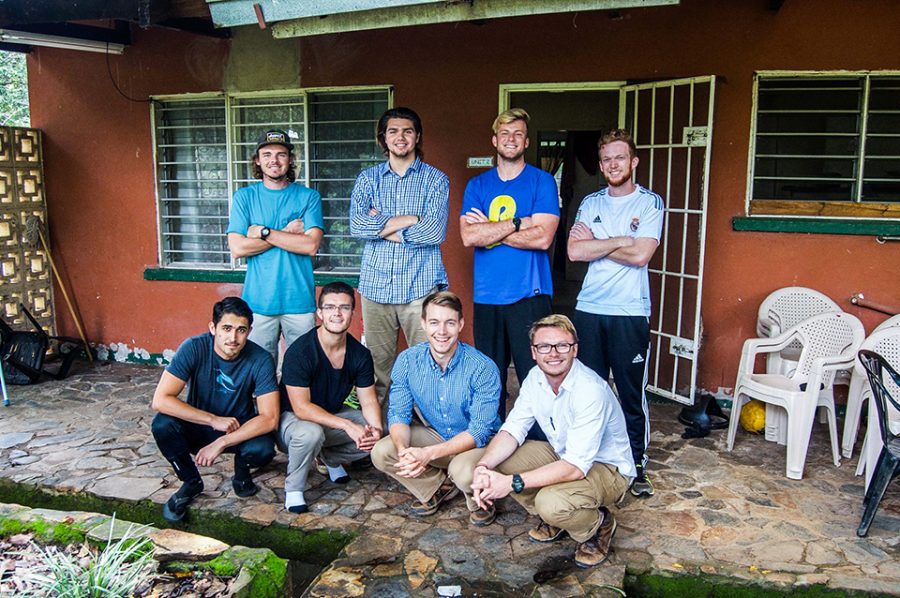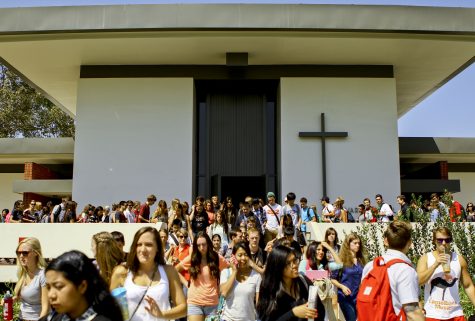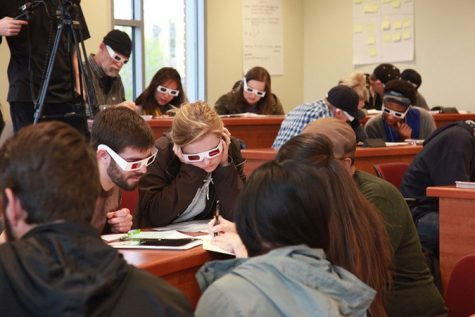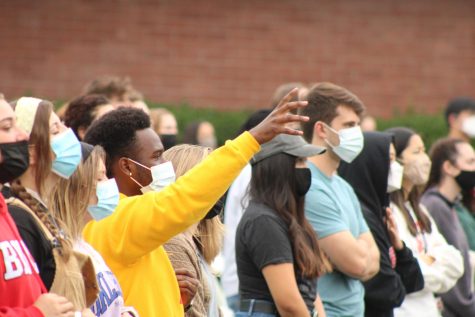Egypt mission trip cancelled
Days after the team bought plane tickets to minister to Egypt, Biola said no.
September 27, 2016

Days after the team bought plane tickets to minister to Egypt, Biola said no. | Photo Courtesy of Thomas Madain
Every ounce of preparation had been made, every factor accounted for. The team prayed, educated themselves, fundraised and dedicated their lives to a nation in need: Egypt. The great commission called, and they readied themselves to give everything to answer.
Whispers of danger in the land
Then everything changed. In mid-fall, Biola’s Student Missionary Union received whispers of danger in the land, and the hint that plans had to change for the mission trip. Biola’s Risk Management department keeps careful watch over every occurrence throughout the semester and evaluated the safety levels of every country SMU sent missionaries into. Three countries SMU planned to send missions to concerned the Mission Assessment Review Committee, Biola’s administrative board established for approving missions; Egypt eventually fell beneath their comfort level regarding safety.
The team, heartbroken, took the news with grace. Zambia, a nation in South Africa, replaced the nation they had dedicated themselves to for months. And yet, God’s work maintained strength, and the missionaries poured themselves into the ministries required of them in Zambia instead.
Thomas Madain, junior biblical studies major and team member for the mission to Egypt, remembers the day vividly. A cold conference room in the lower Student Union Building held the team and a board of Biola administration the team had never seen previously and never saw again. Team Egypt sat next to Brady Lee, then president of SMU, and took the news their trip would not continue.
“They call us in, and they’re talking to us about, like, ‘After careful consideration and prayer, we decided you guys aren’t going to be able to go to Egypt. We’re still in the process of trying to make a trip happen for you guys.’ It was at the time the bombing in [Paris,] France happened. They thought it was deemed too dangerous for us to go,” Madain said.
Murray Decker, SMU faculty advisor and intercultural studies professor, is a member of MARC and explained the process thoroughly of how the decision was made with intention as well as concern. While dialogue continued through the semester on the safety and risk factors of every outgoing mission trip, team members are often not told of them.
“We were all disappointed, even those in the room making that decision. This is a hard decision, this is tremendously disappointing. We know how hard you’ve worked,” Decker said.
Keep quiet?
While the reasoning behind the sudden cancellation felt legitimate to the team, the distant board struck a nerve when they asked the team to keep the cancellation quiet. According to Madain, members of the team felt temptation to act out in anger by demanding answers from Metzger while the board anticipated social media posts out of frustration at the university.
“Then someone on the board, this does irk me a little bit. He said, ‘Don’t go making posts about it.’ Telling us not to go and [tell people.]…[We were angry because] we were told to be hush hush about it, the cancellation, then the potential having to raise more money because we lost the plane tickets. If they had told us three days prior, we could have saved all that money,” Madain said.
Nick Mutch, junior public relations major and this year’s Short-Term Missions Director who takes charge of communicating with MARC through the mission proposal process, stresses the importance of the bigger picture. Mutch emphasized the progression of the gospel above all else.
“We do believe that the Lord is good through it all. We believe that that did happen for a reason and we trust in that moving forward,” Mutch said. “The Lord was able to redeem that and provide them with a ministry in less than a week because it was a pressure situation. They were able to still spread the love of Jesus to those people in Zambia, and at the end of the day that’s why we’re here.”
After the successful Zambia trip, the team assumed the board would seek them out to explain or acknowledge them further for the disappointment. The team had no such luxury.
In addition, Madain communicated that team Egypt had prepared mentally and emotionally for any trauma or troubles they may encounter on a dangerous mission like this one. The team was willing to go to extreme lengths to spread the gospel to those people. The reason they felt compelled to go had roots in the danger already plaguing the country.
“Biola isn’t a missions organization. Their job isn’t necessarily to send current students into the most dangerous places. We were willing to go, but at the end of the day, none of us were full-time missionaries. So they had to look out for our safety and, say one of us were to go and something was to happen, then Biola would get the blame. So that’s where we had to think of the bigger picture,” said Team Egypt leader and Biola alumnus Josh Morris in a phone interview.
Ties between SMU and administration have strengthened considerably since the redirection of Team Egypt to Zambia.
heartbroken of cancellation
“In hindsight, I think everybody wishes we could have given them an alert earlier on,” Decker said. “It wasn’t like there were two sides and somebody powered out. It was a consensus decision made with a number of people, and again, the SMU president and the director of team staff were in that room as we talked about it.”
All this to say, a lack of transparency and seemingly uncaring command for silence begs further information to the process behind the scenes. Morris commented on the meeting and how the team responded.
“They knew we wouldn’t be happy. They were heartbroken to cancel it. It was very, a really tough decision for the administration to make and they did not want to make it. But since we were going under the umbrella of Biola, they were responsible for us. So, to protect the institution, it was a choice they had to make,” Morris said.
SMU then petitioned the university for funding to cover all donation money lost in the gap between what Team Egypt raised and what Zambia required. Team Egypt had already sent money for building supplies and plane tickets; both of which were gifts to the country and non-refundable, respectively. The university’s emergency contingency ended up paying for the gap, roughly $10,000 for the plane tickets alone, according to Madain.







